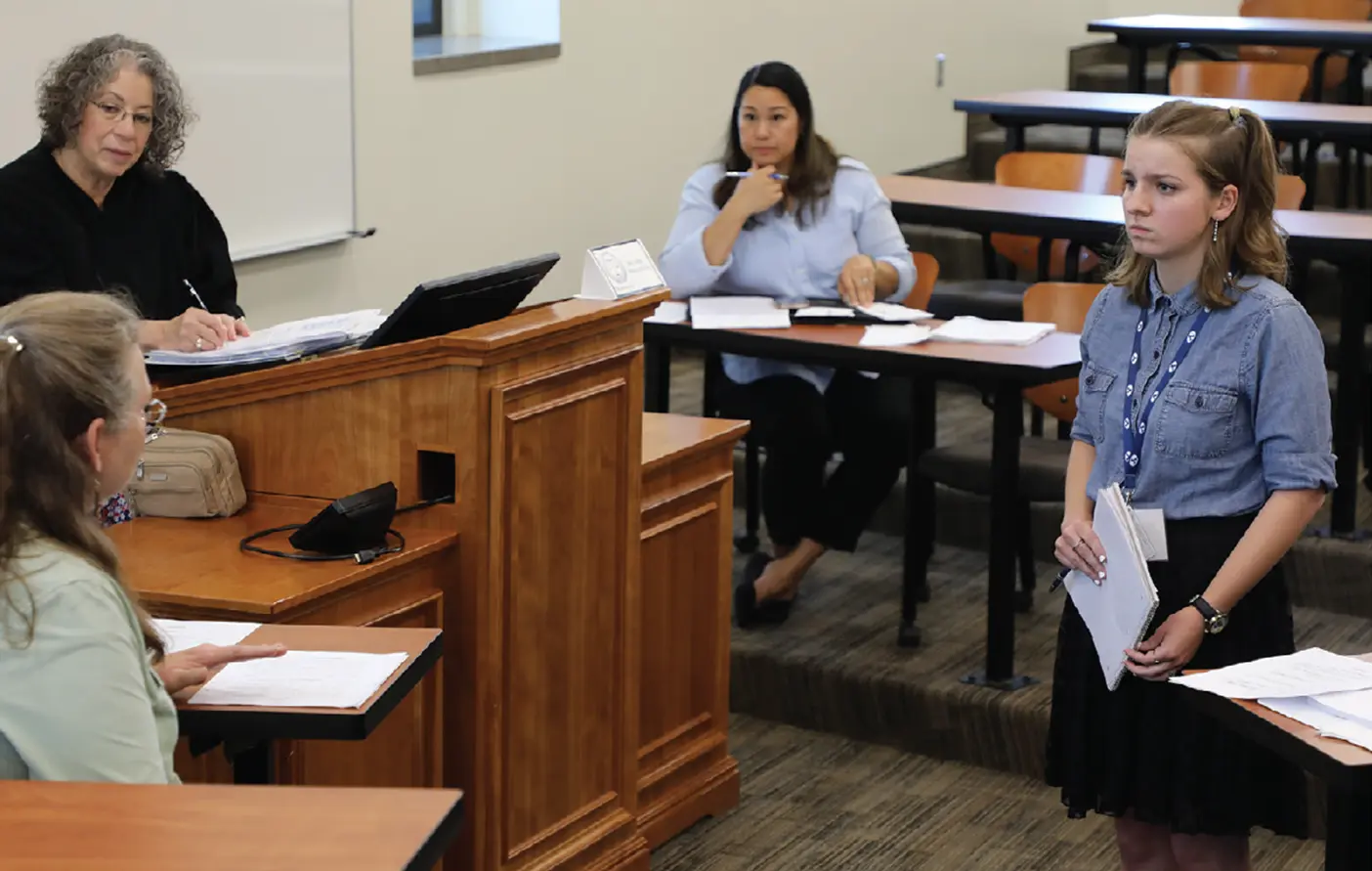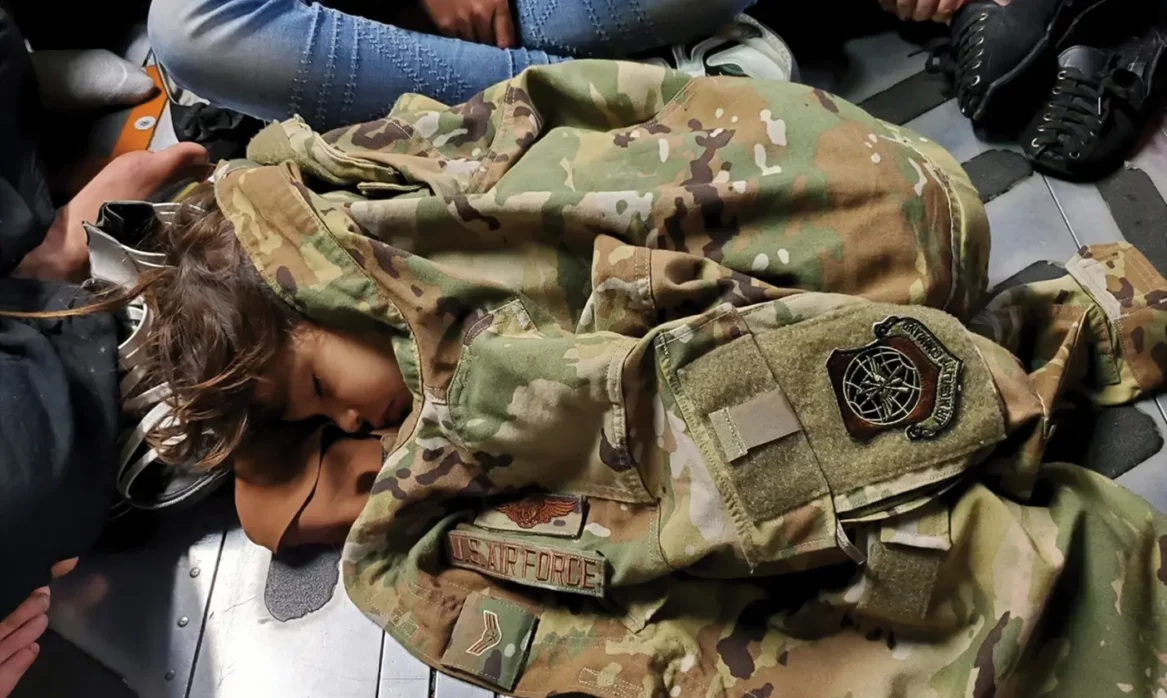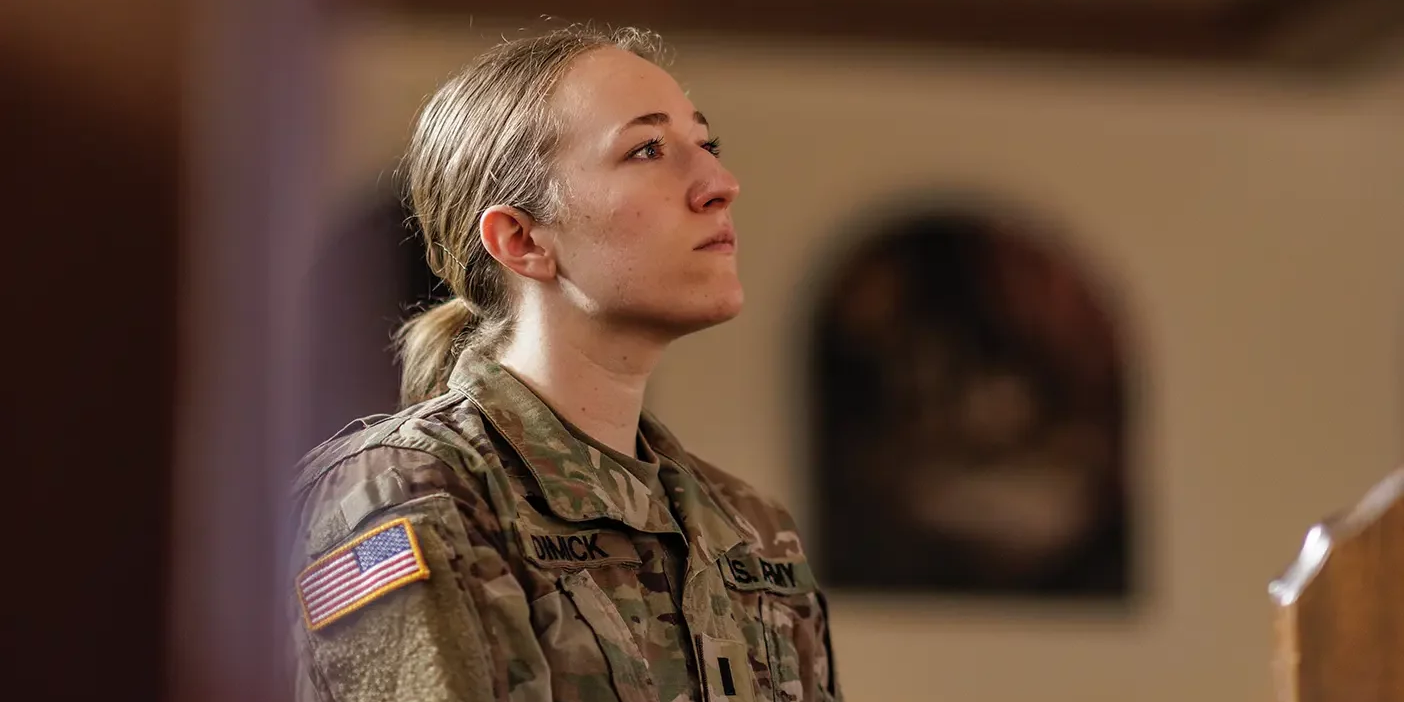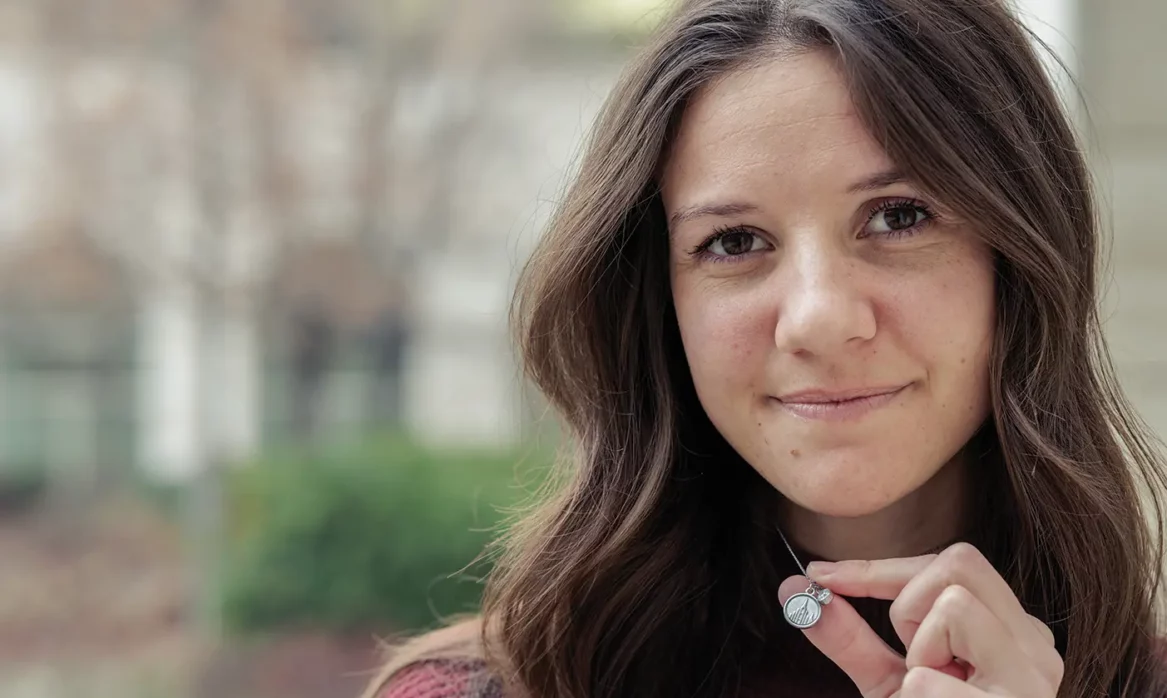From her Cuban childhood to her work as a district judge, an alumna has spent her life reinventing herself.

Standing before family and friends in 1998, Denise Posse-Blanco Lindberg (BS ’70, JD ’88) raised her hand and swore to support, obey, and defend the constitutions of the United States and Utah. It had been a long and difficult journey from Lindberg’s 1950s Cuban childhood to this Salt Lake City courtroom, where she became Utah’s first Hispanic American district-court judge. As her mother placed the judicial robe over Lindberg’s shoulders, it marked yet another beginning for Lindberg, and it remains one of her “proudest moments.”
For Lindberg, life has been full of new beginnings and fresh starts. And as a judge she was determined to make her courtroom a place of new beginnings for others.
Born to a Puerto Rican mother and Cuban father, Lindberg and her younger brother were registered at the American embassy in Havana. Following the Cuban Revolution their US citizenship allowed them to leave the country, but Lindberg’s father remained behind. “When we left Cuba, we lost everything,” Lindberg remembers. “We only had the clothes on our back and a small suitcase.”
The exiled family first headed to Puerto Rico, where Lindberg’s father was later allowed to join them after suffering a stroke. He would never be able to work again, needing care from Lindberg as her mother worked to support the family.
Then, three years later, they moved to New York, where her father suffered another stroke. “Two moves in three years—it was hard,” Lindberg says. To help out, Lindberg took over household responsibilities. “I wanted to help lighten the heavy burdens my mother had to carry to provide for us, but it did take an emotional toll on me.”
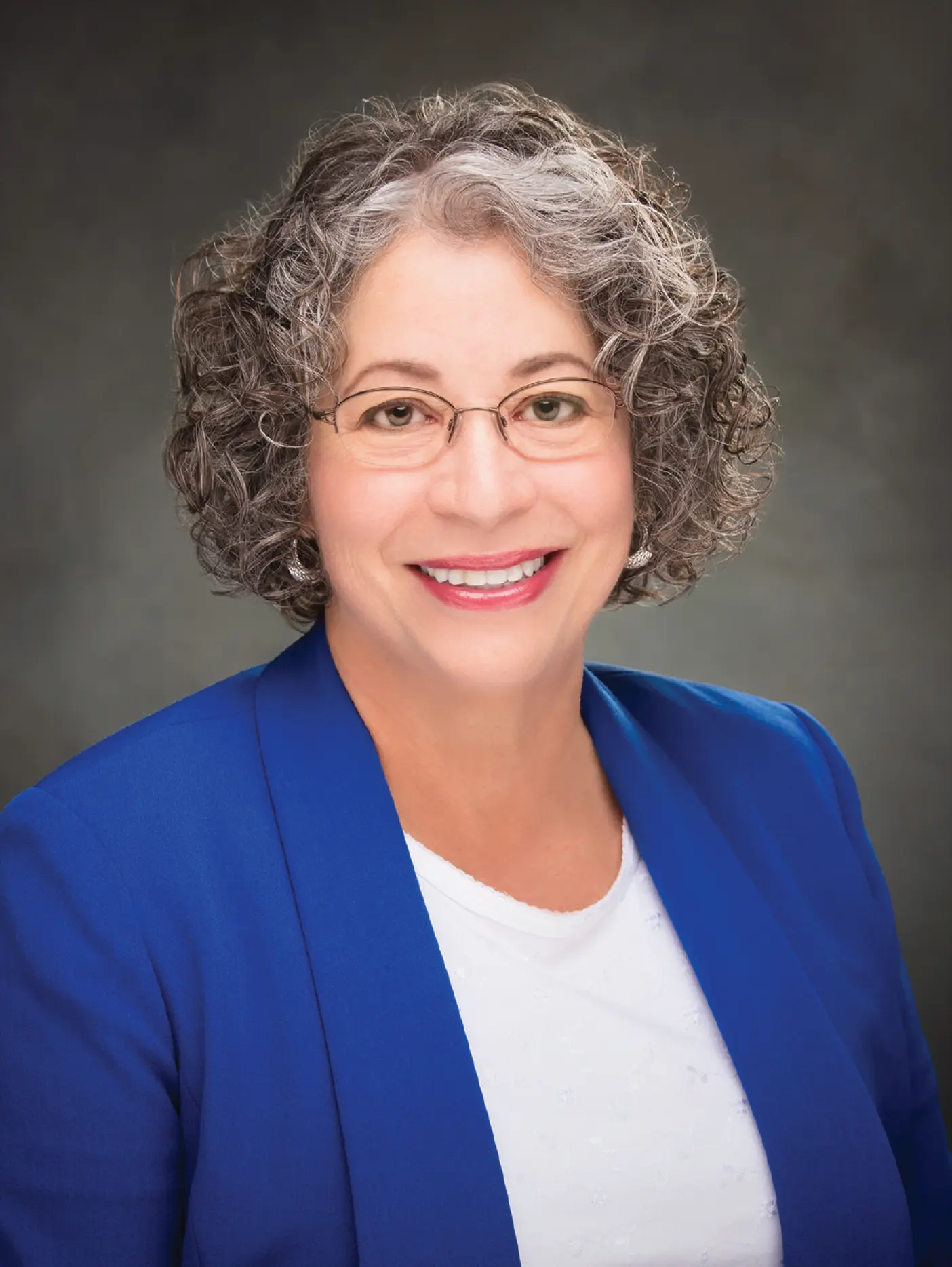
In New York Lindberg struggled to learn English and deal with the prejudice she encountered as an immigrant. Even so, she excelled academically and graduated from high school at 15.
Mature beyond her years, Lindberg would often wander New York City by herself. One adventure took her to the 1964 World’s Fair, where she visited the exhibit for The Church of Jesus Christ of Latter-day Saints. Missionaries saw her name in the visitors logbook and contacted her. She and her family soon converted. Wanting to meet others of her new faith, Lindberg enrolled at BYU. Studying broadcast journalism, she graduated at 19.
Lindberg remembers how her youth set her apart from her classmates. During her senior year—when she was finally the same age as other students—she met her future husband, Neil A. Lindberg (BS ’73, MPA ’80, JD ’90).
To help provide for their young family, Lindberg began working with a variety of Utah state agencies. Along the way, she earned a master’s in educational psychology, then a master’s in social work, and finally a PhD in health science, all from the University of Utah. “What inspired me to continue my education was realizing my mother’s education kept our family afloat when we left Cuba,” she says. Lindberg’s education likewise became a safety net for her family.
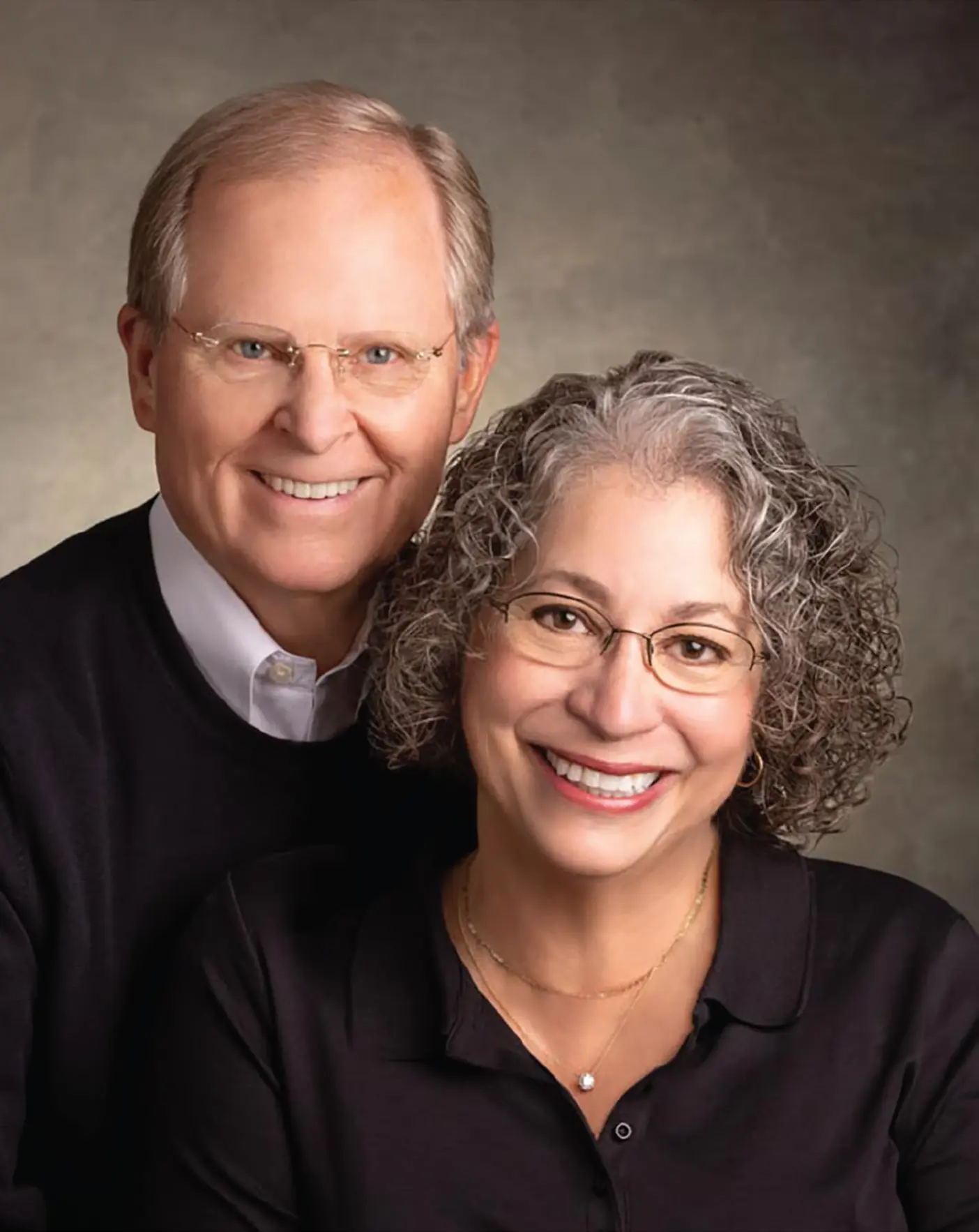
After receiving her PhD, Lindberg began working for the State Office of Education. As she worked alongside lawyers there, Lindberg admired the way they thought and considered attending law school herself. But with her work and two sons, she didn’t seriously consider tacking on yet another degree. That is, until she met Eugene B. Jacobs II, a BYU Law School professor, who encouraged her to apply at BYU.
“My mother had taught me if a door opens, go through it,” Lindberg says. And so, after many conversations with her husband and sons, they decided to send Lindberg to law school, despite the financial and emotional strain. “My husband and sons carried much of the household responsibilities so I could commit the bulk of my time to schoolwork,” says Lindberg.
Lindberg jumped into law and loved it, meeting valuable mentors such as former US solicitor general Rex E. Lee (BS ’60). Lee, admiring Lindberg’s spunk and work ethic, introduced her to Supreme Court justice Sandra Day O’Connor, for whom Lindberg would later clerk. Working with Justice O’Connor inspired Lindberg to pursue becoming a judge herself.
Her dream became a reality in 1998, when, after years in other law positions, Lindberg applied to be a judge in Utah’s Third Judicial District. Typically a lawyer has to apply several times even to be considered. But Lindberg’s history of hard work and grit paid off, and Utah governor Mike Leavitt offered her the position with confidence that she would learn her role, even though she had previously only worked in appellate courts.
“My mother . . . taught me if a door opens, go through it.”
—Denise Lindberg
She embraced her new role on the bench. “Those first three years . . . were like drinking out of a fire hose, trying to master court procedure, evidence law, all those things,”Lindberg says. She would go on to judge many notable cases.
Remembering the opportunity she’d had to start anew as an immigrant, Judge Linderg sought to help the defendants who came through her courtroom obtain their own fresh start. In a large binder labeled “The Worth of a Soul Is Great,” she keeps mementos from her time as a judge. “These are thank-you notes from defendants that I had in . . . criminal court. Most are writing to say thank you for helping them change their lives. You can make a difference at a community level, but the real important difference is in individual lives.”
After retiring in 2014, Lindberg served on the Young Women General Board of The Church of Jesus Christ of Latter-day Saints until 2018. She is a fellow at BYU’s International Center for Law and Religion Studies and volunteers for the Church’s Office of General Counsel as a government relations advisor for Latin America and the Caribbean while spending time with her husband, children, and grandchildren.
Looking back on her journey, Lindberg can see God’s clear influence. “I have seen the hand of God many times, but I’ve seen it mostly in retrospect. Leaving Cuba, all these other steps looked random, but I can really trace things that I learned at each step, even in the really hard times.”
